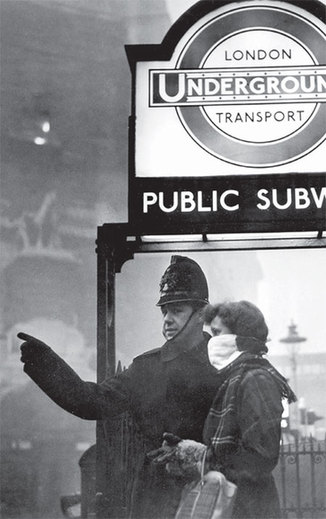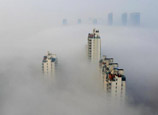
 |
| A policeman assists a woman during a dense London fog in 1953. Provided to China Daily |
Selling the policy
“Looking back 50 years, I can’t imagine there are many people now who don’t recognize that this was the right policy,” wrote Ken Livingstone in an official memoir of the 1952 smog incident, published in 2002.
In the UK, there was a great deal of public discontent after the government passed legislation aimed at phasing out coal fires in response to the 1952 incident. It meant that before the widespread adoption of central heating many people had to use paraffin heaters and there was great resistance to change.
The lesson can also be applied to China.
It is wrong to believe that a lack of cooperation by the public results from a lack of awareness, said Zhang. More often, people don’t change the way they behave because they are restricted by external conditions.
“If the government wants a higher take-up rate for public transport, they need to make it a better choice for the people,” she said. “Traveling by bus or subway is a pleasant experience in many countries. The transport arrives on time and is always not crowded.”
Greater public involvement in the decision-making process is also essential, said Ira S. Richards, a toxicologist and professor of public health at the University of South Florida.
“In the US, communities have some say in the production of the standard. Chinese communities have greater awareness today and they should play an important role in producing the standards for anti-air pollution,” Richards said.


















 Why supervision on 'drug chicken' lacks intensity?
Why supervision on 'drug chicken' lacks intensity?


![]()
